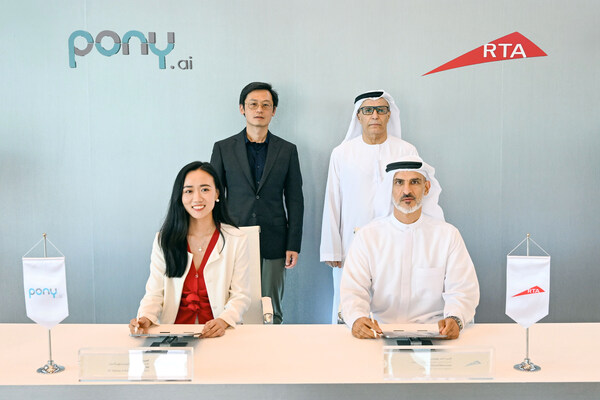Pony.ai and Dubai’s Roads and Transport Authority (RTA) revealed Pony.ai’s robotaxi in Dubai, highlighting their partnership to advance Level 4 autonomous mobility solutions.
Building on the collaboration announced earlier this year, both sides reaffirmed their commitment to integrating self-driving technology into Dubai’s multimodal transportation framework. The strengthened alliance focuses on enhancing urban mobility efficiency, reducing traffic congestion and establishing sustainable transportation models that align with Dubai’s vision to transform 25% of all journeys in the city into autonomous trips by 2030.
Mattar Al Tayer, director general, chairman of the board of executive directors of RTA, expressed his satisfaction with the signing of the memorandum of understanding with Pony.ai, emphasising that the partnership would support Dubai’s ongoing efforts to adopt autonomous mobility solutions and reinforce its global leadership in future mobility. He also expressed appreciation for the company’s decision to choose Dubai as its global platform for expanding operations beyond China.
Dr Leo Wang, chief financial officer of Pony.ai, said, “The collaboration with Dubai RTA exemplifies our commitment to deploying Level 4 autonomous technology in strategic global markets. By aligning our technological capabilities with RTA’s visionary leadership, we’re establishing foundational standards for intelligent transportation ecosystems across the MENA region.”
Future of mobility
Under the agreement, the collaboration will introduce Pony.ai’s autonomous driving technology through a multiphase rollout. Initial supervised robotaxi trials are set to launch in 2025.
Al Tayer added, “RTA’s continued expansion of partnerships with leading global companies in the field of autonomous mobility marks a key step toward achieving the Dubai Smart Self-Driving Transport Strategy, which aims to convert 25% of all trips in Dubai into autonomous journeys across various modes of transportation by 2030. It underscores RTA’s commitment to working closely with global technology leaders to advance the future of smart, efficient and sustainable mobility.”
He continued, “The operation of autonomous taxis contributes to the integration of transportation systems by facilitating the movement of public transportation users and improving access to their final destinations in line with the first and last mile strategy. Autonomous taxis will enhance the quality of life for residents and visitors in Dubai, improve road safety, and offer greater convenience in daily mobility across the emirate.
“Autonomous mobility has become a present reality. Leading global companies are accelerating the development of technologies and software that power autonomous vehicles, while governments – through the relevant licensing and regulatory authorities – are working to provide the necessary infrastructure and establish the legislative and regulatory frameworks required to enable their operation,” Al Tayer concluded.
In related news, Beep has begun operating the Jacksonville Transportation Authority’s autonomous vehicle service NAVI (Neighborhood Autonomous Vehicle Innovation), which it states is the USA’s first fully autonomous public transportation system.


